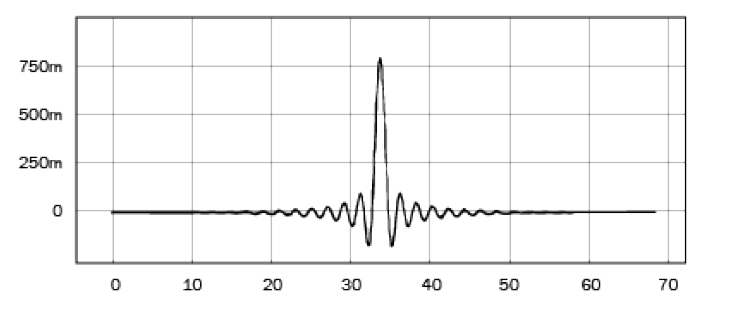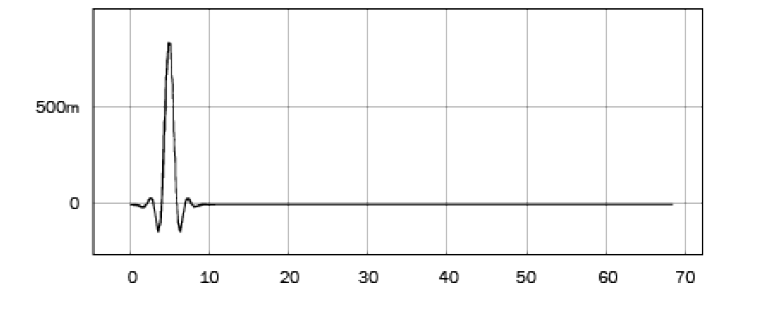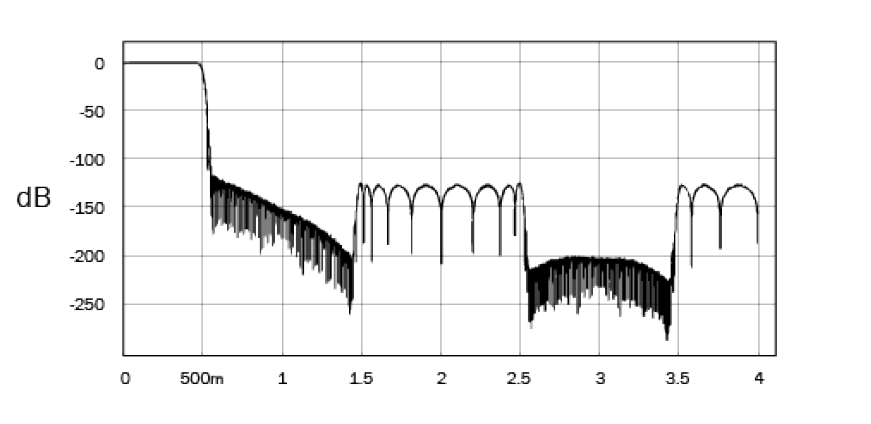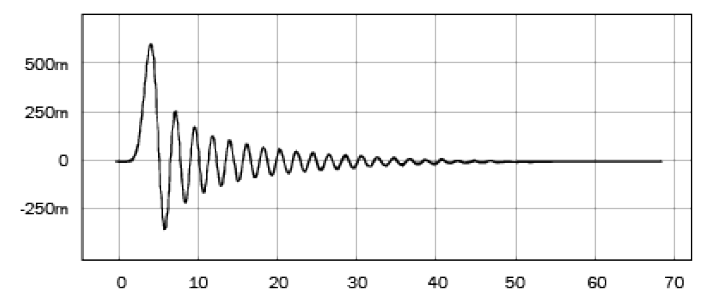The DacMagic 200M has three different digital filter functions: Fast, Slow and Short Delay. All three filters are highly sophisticated audiophile topologies, optimised specifically for audio playback. In our opinion, these filters offer excellent sound quality but differ subtly in optimisation, hence we’ve made all three available to you.
Note: For clarity, all diagrams show the theoretical response of the digital filter itself, excluding any analogue filtering at the DAC output or the antialiasing
filter applied during recording and/or mastering of the digital source.
Fast filter

The Fast (Linear Phase) filter is a highly regarded audio filter offering low ripple in both the pass and stop bands, and what is known as constant group delay. Constant group delay means that audio signals of all frequencies are always delayed by the same amount when passing through the filter. All audio is therefore fully time-coherent at the output.
The trade-off with this type of filter is that its impulse response will exhibit some pre-ringing. In other words, when excited with a theoretical impulse, the output has both a small amount of pre- and post-spike amplitude ringing (albeit well damped).

Slow filter

Our Slow filter has a linear phase and is a compromise between some very high frequency roll off and the minimized level of pre/post impulse ringing. Stop band attenuation is less than other filter types, but there's no phase shift and the impulse response is the cleanest.

Short delay filter

The Short Delay (minimum phase) filter is another highly regarded audio filter that offers even lower ripple in the pass and stop bands. Unlike the Linear Phase filter, group delay is not constant; however, phase shift is low and the particular benefit with this filter is that the impulse response exhibits no pre-ringing.

We encourage you to experiment with the filters to determine which sound best to your ears and using your source equipment/programme material. The DacMagic 200M remembers and recalls the selected filter type at power up.
Note: when reproducing MQA contents, the filters selection is disabled.